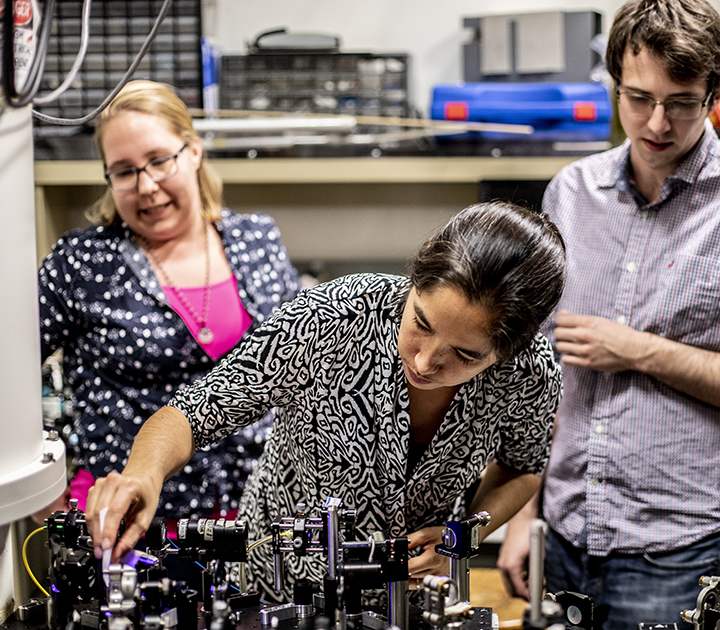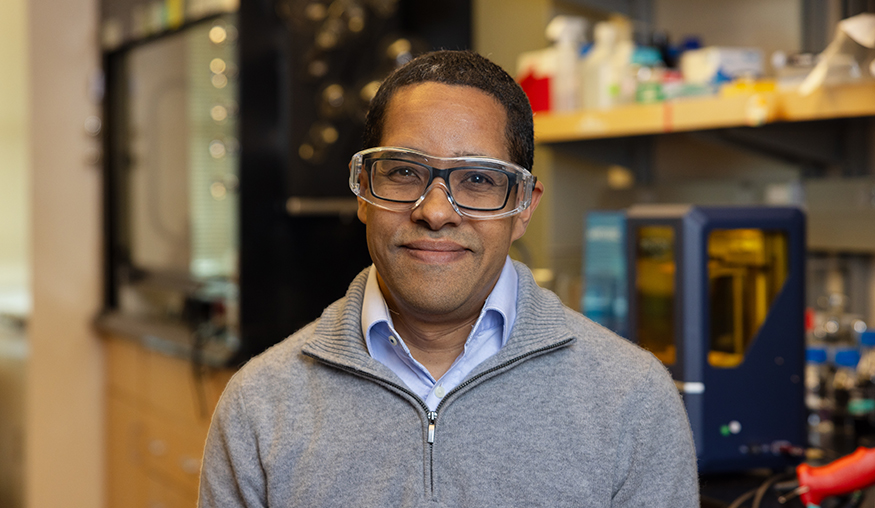Research with Impact
Faculty and students in all four divisions of the College of Arts & Sciences -- arts, humanities, natural sciences, and social sciences – pursue research to address to many of our world’s most pressing challenges. Their discoveries and innovative solutions have led to advances in areas from population health to quantum science to social justice and have pushed the boundaries of artistic creation.

Research Initiatives
Arts & Sciences researchers play key roles on ambitious projects that explore unresolved questions in particle physics, the origins of the universe, climate change, and more.
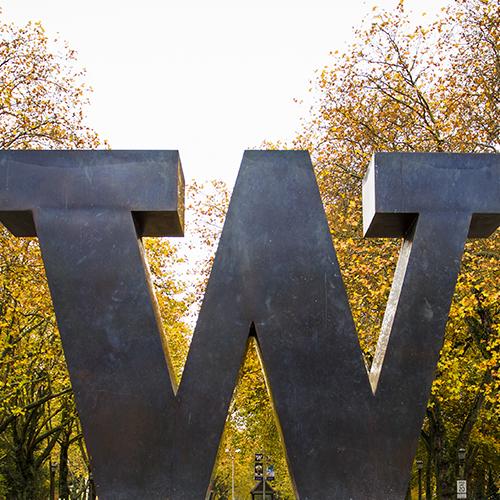
Awards & Honors
Faculty in Arts & Sciences have received Nobel Prizes, MacArthur Fellowships, Sloan and PECASE awards, and many other top honors.
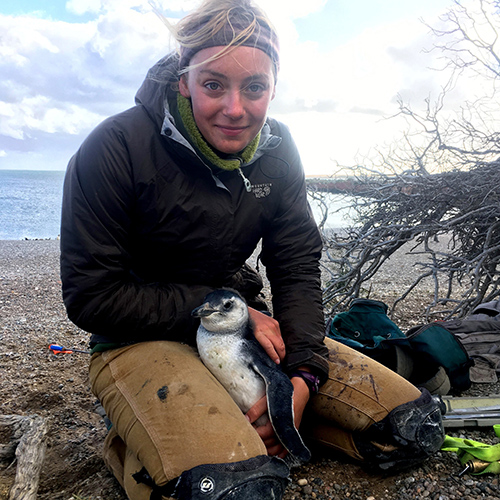
Students & Research
Students work closely with faculty researchers, advancing the research in meaningful ways and gaining skills they can apply to the real world.
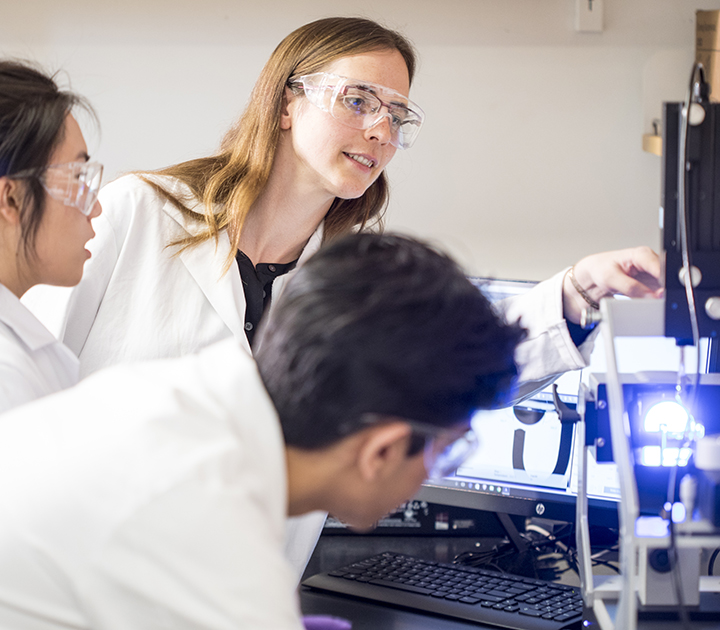
This Lollipop Is the Future of At-Home Health Care
For a scratchy throat, feeling unwell is bad enough. The dreaded strep throat swab that follows is no fun either, especially for kids. Professor Ashleigh Theberge’s lab in the UW Department of Chemistry has invented a gentler alternative: a strawberry flavored lollipop with tiny spiral channels that siphon off saliva for testing. The idea is that the lollipop could eventually be a part of home first aid kits for parents to test their child themselves. Learn more in this video from the Packard Foundation, which supports Theberge's research.
Research Highlights
-
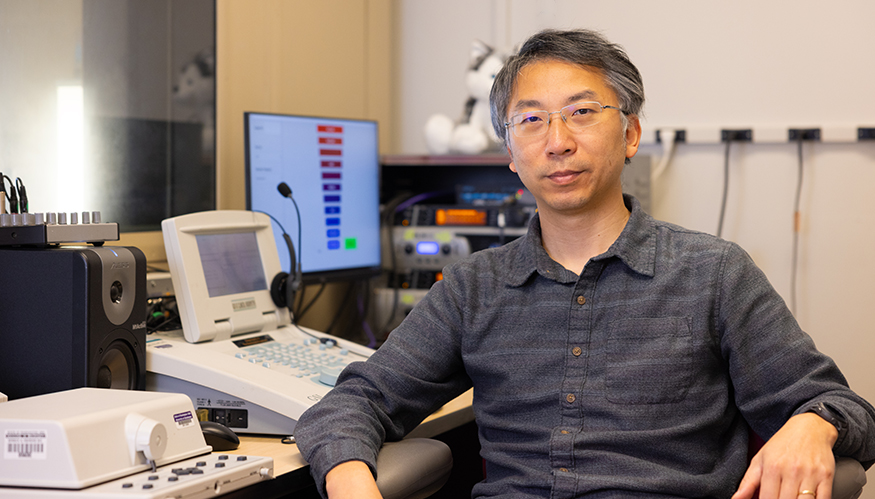
An earful of AI
Hearing aid technology is improving all the time with the help of AI, thanks to researchers like Shen Yi, professor of speech & hearing sciences.
-
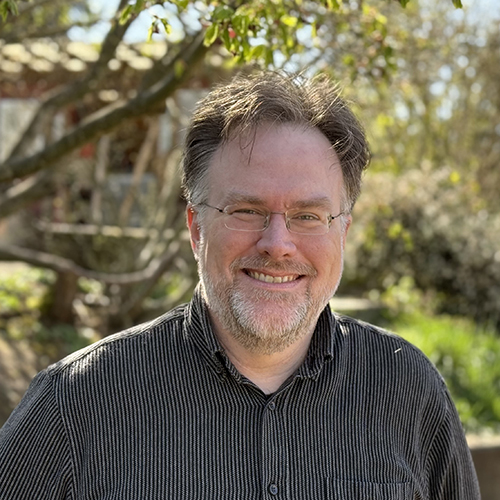
Adolph Ranked #1 Among Political Scientists for Impact
In a global ranking of research productivity of political scientists, UW Professor Christopher Adolph was ranked first globally for recent impact, thanks to his team's research on COVID-19 policies.
-
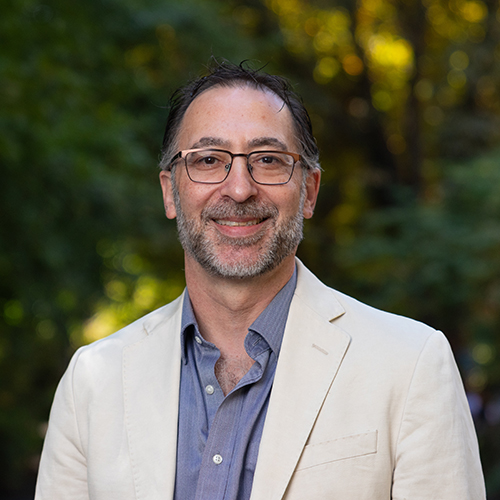
The Curious Journey of Chinese Characters
Several Asian countries adapted the Chinese writing system—the oldest writing system still in use—for their own languages. In a new book, Professor Zev Handel shares how that happened.

Spotlight on Research
Can machines learn morality?
UW researchers at the Institute for Learning & Brain Sciences and in the Allen School are exploring the potential for training AI to value altruism.
A&S Research in the News

3I/ATLAS makes closest approach to Earth

How climate swings shaped the bodies of cats, dogs and bears

Teens holistic approach to school phone policies rivals adult rules
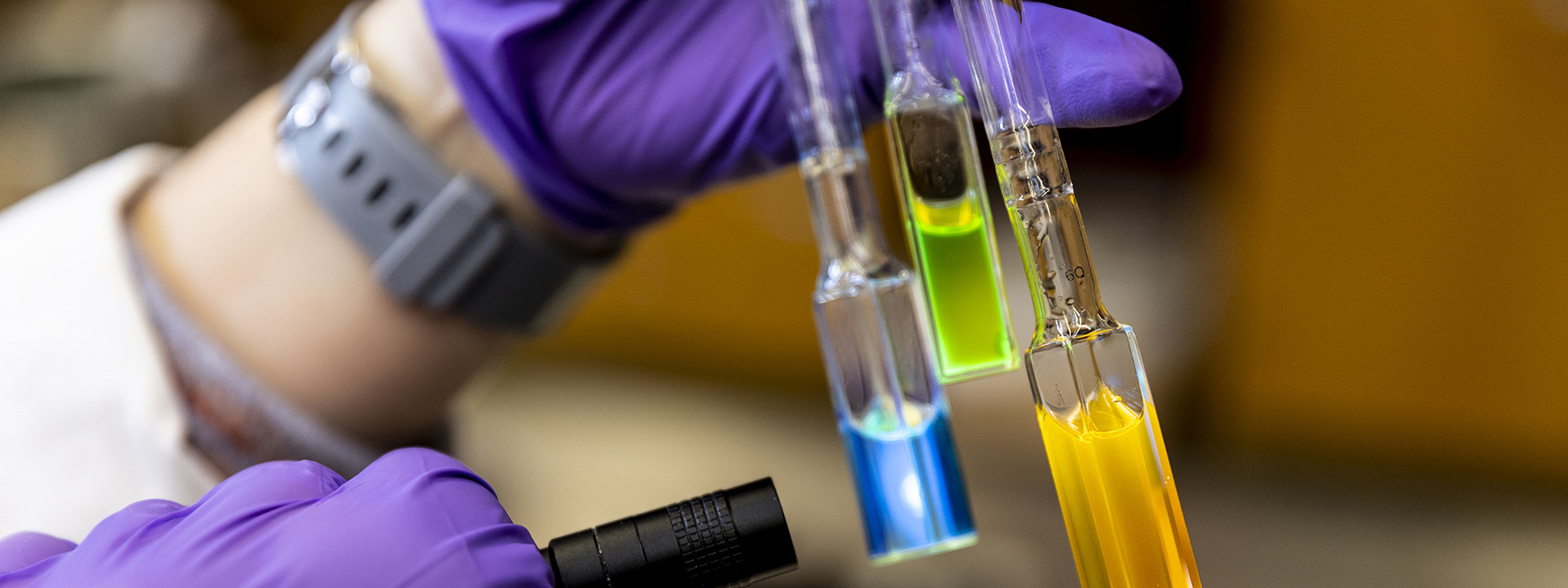
Arts & Sciences Research Support Team
Xiaosong Li, associate dean for research, is responsible for the strategy, operations, and implementation of the College’s research program. Li, the Larry R. Dalton Endowed Chair in Chemistry, was previously associate vice provost for research cyberinfrastructure in the UW Office of Research.
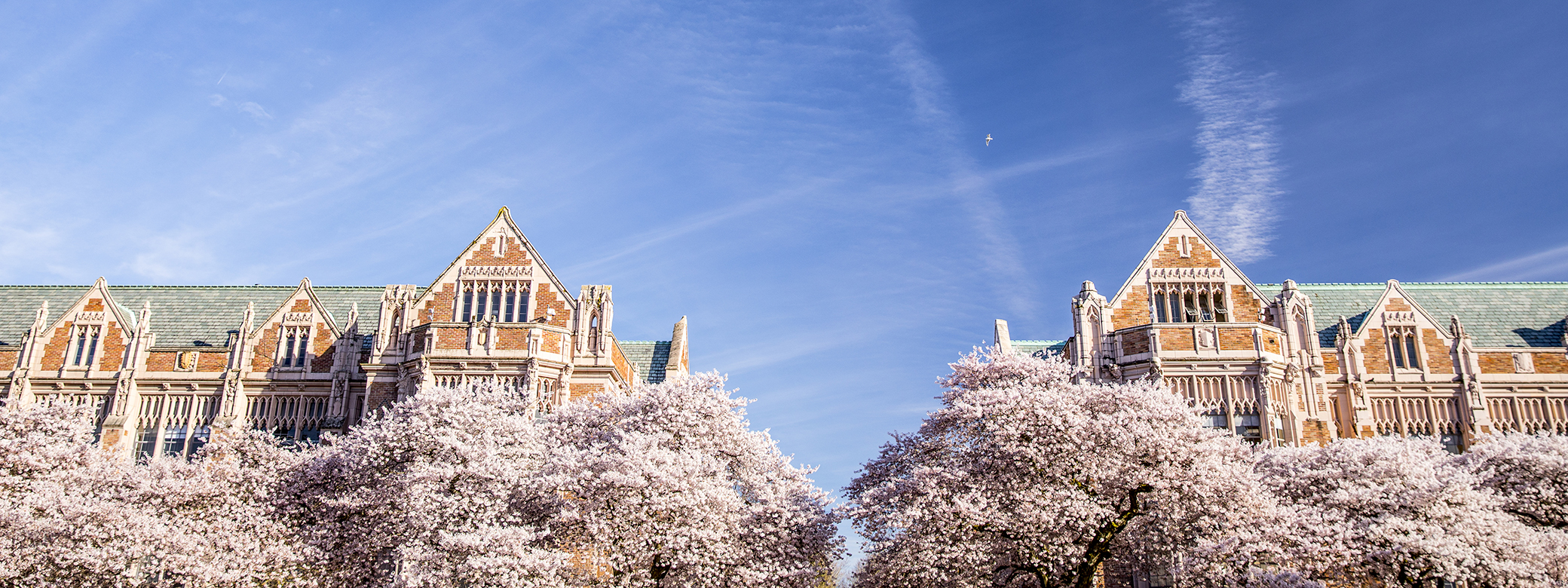
Centers and Institutes
The College of Arts & Sciences is home to more than 30 interdisciplinary centers and has ties to many others, allowing scholars in diverse fields to collaborate on complex research questions.

